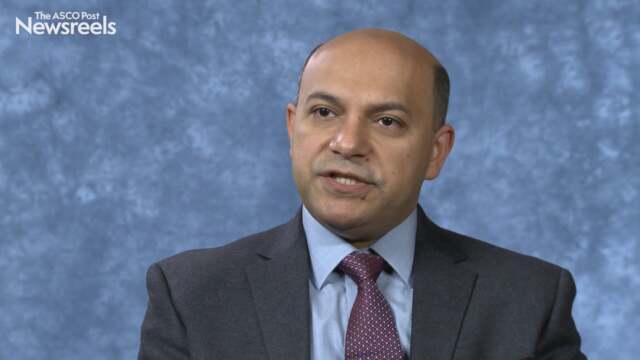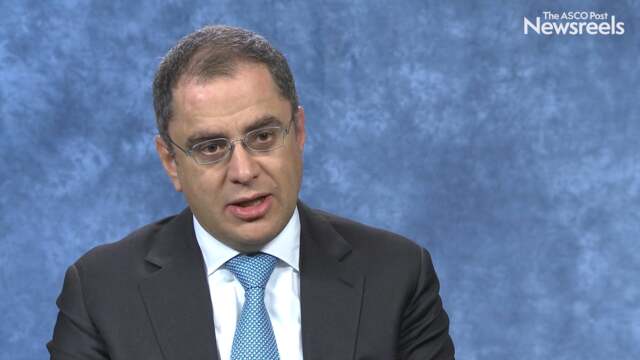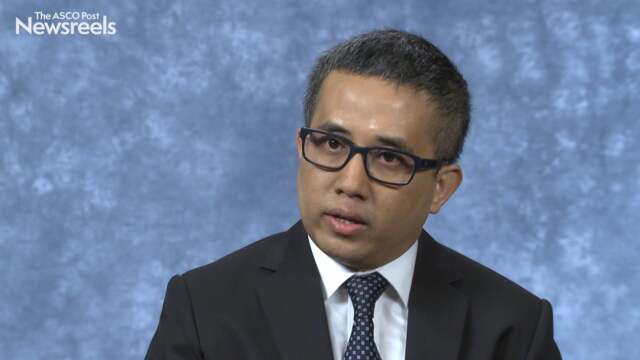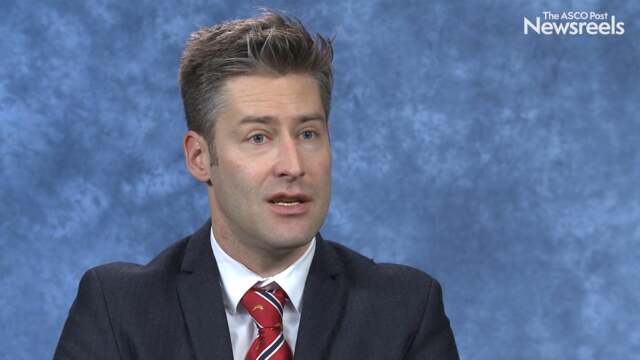Florian Lordick, MD, on Gastric Cancer: Final Results From the AIO Trial
2018 Gastrointestinal Cancers Symposium
Florian Lordick, MD, of the University Medicine Leipzig, discusses study findings on intraperitoneal immunotherapy with the antibody catumaxomab for patients with peritoneal carcinomatosis from gastric cancer (Abstract 4).
Basem Azab, MD, of the Sylvester Comprehensive Cancer Center, University of Miami, discusses the impact on overall survival when more than 2 months elapse between finishing neoadjuvant therapy and undergoing esophagectomy (Abstract 2).
Andrew X. Zhu, MD, PhD, of Massachusetts General Hospital, discusses study findings on pembrolizumab in patients with advanced hepatocellular carcinoma previously treated with sorafenib (Abstract 209).
Ghassan K. Abou-Alfa, MD, of Memorial Sloan Kettering Cancer Center, discusses phase III study findings on cabozantinib vs placebo in patients with advanced hepatocellular carcinoma who have received prior treatment with sorafenib (Abstract 207).
Kyaw L. Aung, MBBS, PhD, of Princess Margaret Cancer Centre, discusses early study findings on genomics-driven precision medicine for advanced pancreatic ductal carcinoma (Abstract 211).
Pieter van der Sluis, MD, PhD, of the University Medical Center Utrecht, discusses study findings that compared robot-assisted minimally invasive thoracolaparoscopic esophagectomy vs open transthoracic esophagectomy for resectable esophageal cancer (Abstract 6).





